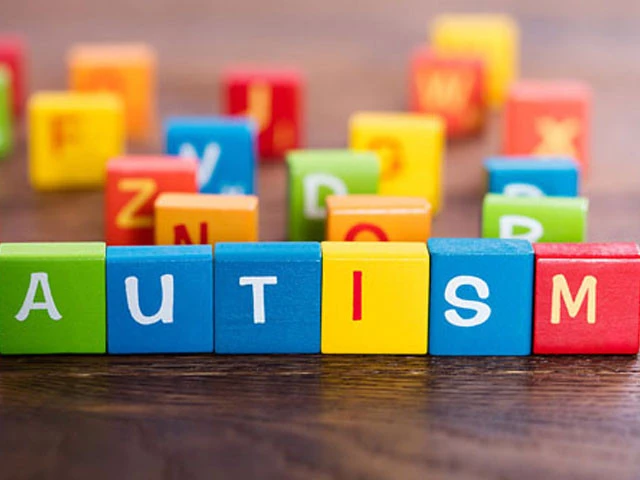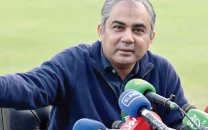Autistic children lack support in K-P
Lack of diagnostic, treatment facilities for neurodivergent children pushes families to seek help outside province

In Pakistan, the predominant definition of a healthy child is a cute chubby kid with squeezable cheeks. As a result of this superficial criterion for well-being, children born with autism, who experience trouble reaching various neuro-developmental milestones, are often left neglected not only by caregivers but also by healthcare providers.
Although lack of awareness on autism persists across the whole country, in Khyber-Pakhtunkhwa (K-P), the issue is significantly more alarming since till date the government has failed to establish a single public autism centre during their 14 years of holding office.
Across the province, including Peshawar, there is no government-run facility to diagnose or treat children living with autism, leaving families to rely on expensive private centres or seek online consultations from other cities and abroad.
The World Health Organization (WHO) defines autism as a diverse group of conditions marked by some degree of difficulty with social interaction and communication. Among children, the most common symptoms include difficulty in speech, avoiding eye contact, repetitive movements, social isolation and fixed preferences and routines.
According to the Autism Society of Pakistan, nearly 400,000 children in Pakistan suffer from autism, with around 150,000 belonging to K-P and the nearby tribal areas. Alarmingly, K-P’s health and social welfare departments do not even maintain official data on these children, highlighting a complete absence of state-level awareness or planning.
As a result, parents are forced to approach facilities like PIMS in Islamabad, the Aga Khan Hospital in Karachi, or even attend costly online sessions with foreign experts.
One such parent was Sidra Khan, whose four-year-old son was diagnosed with autism. It took her three months to even find a doctor for consultation. After an online session with a US-based doctor via PIMS, she discovered that no government centres for autism existed in K-P. At a private centre in Peshawar’s University Town, she was charged Rs100,000 per month for therapy, forcing her to sell family property to continue her son’s treatment.
Similarly, Kamran, another parent from inner Peshawar, revealed that his nine-year-old son’s autism was diagnosed three years ago. Due to the absence of experts in Peshawar, he is now planning to relocate to Islamabad or Karachi.
Similarly, Nafeesa, a mother of two autistic children from K-P, was compelled to move to Islamabad to enroll her children into a special needs school, after spending nearly Rs200,000 to Rs300,000 on their unsuccessful treatment in Peshawar.
According to a survey conducted by the Express Tribune, Peshawar has just one semi-public autism centre, which started as a project in 2021 and became operational in 2023 under the Social Welfare Department. This centre, located in Hayatabad, registers only 70 children, operates with just 14 staff members, and has a waiting list of over 200 children due to space and staffing shortages.
There are roughly 15 private autism centres and five schools in Peshawar, charging between Rs60,000 to Rs100,000 per month, with only one offering free therapy to underprivileged families. Approximately 700 children receive therapy in these private facilities.
Clinical psychologist, Masooma Khan explained that psychological, speech, occupational, and behavioral therapies, along with parental involvement, were essential for improving the lives of autistic children.
Likewise, Dr Farrukh Tariq, a speech therapist associated with the Paraplegic Centre in Peshawar, stressed the need for early intervention, noting that most children were diagnosed at ages seven or eight, when developmental improvements become much harder.
“Government intervention is necessary for improving autism services in public hospitals, increased awareness, and affordable therapies. Lack of treatment pushes many autistic children into lifelong psychological struggles, while poor families remain helpless due to unaffordable therapy costs,” said Dr Tariq.




















COMMENTS
Comments are moderated and generally will be posted if they are on-topic and not abusive.
For more information, please see our Comments FAQ